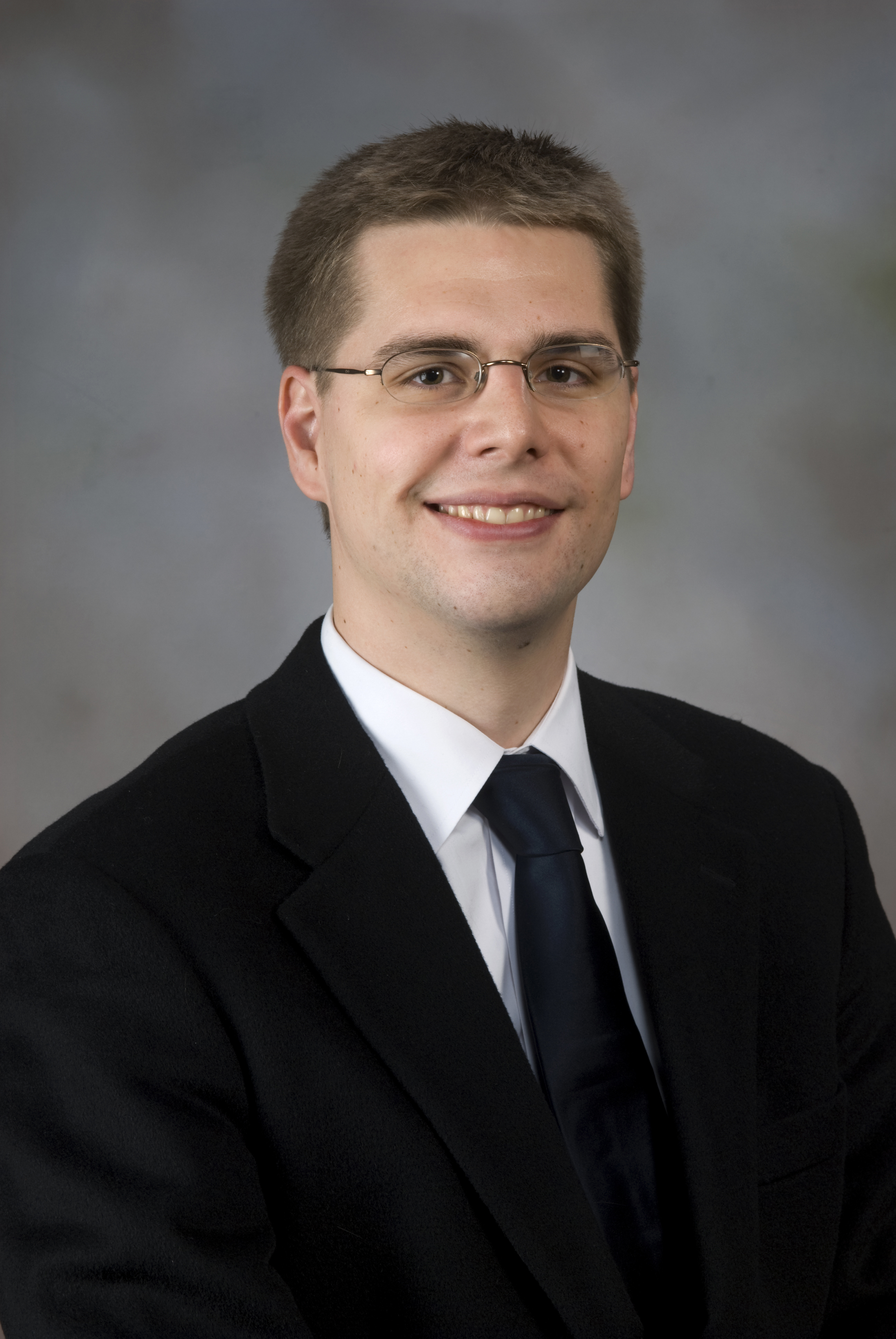Christopher Williams invited to the 2013 NAE German-American Frontiers of Engineering Symposium

Christopher Williams, assistant professor at Virginia Tech with a joint appointment in engineering education and mechanical engineering, one of 60 superior engineers from the United States and Germany, has been invited to lead a session on additive manufacturing, often referred to as 3-D Printing, at the 2013 NAE German-American Frontiers of Engineering Symposium, which will be held in the United States.
In March, Williams attended the 2012 German-American Frontiers of Engineering Symposium. Topics covered at this year's symposium included energy storage, implantable electronics, robotics for hazardous environments and nanomaterials, and the environment. The 2012 meeting was held in Postdam, Germany.
Since 1995, the National Academy of Engineering (NAE) has held an annual Frontiers of Engineering symposium that brings together 100 exceptional engineers (ages 30-45) from U.S. companies, universities, and government to discuss leading-edge research and technical work across a range of engineering fields.
In 1998, the Frontiers program expanded internationally to include India, Japan, and China in the program.
The Alexander von Humboldt Foundation co-organizes the German-American Frontiers of Engineering with the NAE.
Bilateral Frontiers of Engineering meetings are held annually, with the location alternating between countries. There the engineers are challenged to think about developments and problems at the frontiers of areas different from their own, enable collaborative work, then transfer new techniques and approaches across fields, and establish contacts among the next generation of leaders in engineering.
Williams, who joined the Virginia Tech community in 2008, is the director of the Design, Research, and Education for Additive Manufacturing Systems (DREAMS) Laboratory. The lab's focus is on advancing the science, state of the art, and pedagogy of additive manufacturing. The lab's research mission is to be a leader in the transition of today's layered fabrication techniques into viable manufacturing platforms for the realization of end-use products.
Williams' joint appointment reflects his diverse research interests, which include additive manufacturing, product design, layered manufacturing, and design education.
"Additive manufacturing seems to be almost at a tipping point -- it has the potential to change the way in which we design, produce, distribute, and purchase products. I am looking forward to organizing a session on additive manufacturing at the 2013 symposium. It will be a great opportunity to collaborate with German colleagues to discuss the future of this exciting technology," said the lab director.
On March 16, Williams unveiled the "DreamVendor," a futuristic "vending machine" where engineering students can print their own custom parts using 3-D Printers. With $7,500 in funding from the Student Engineers' Council, Williams and his students created this unique 3-D printing station, which provides a quick and inexpensive device for students to fabricate components for their academic and personal design projects.
Later this month, the 2012 XCaliber award will be given to a group of Williams' students for using 3-D printing to create physical models for a blind student. The award celebrates innovative, student-centered approaches to learning activities.
Williams' submission, "A Functional Classification Framework for the Conceptual Design of Layered Manufacturing Technologies" was selected for the Best Paper Award at the 2008 American Society of Mechanical Engineers International Design Engineering Technical Conferences. Williams was the lead author, sharing co-authorship with Farrokh Mistree and David Rosen of Georgia Tech.
In 2011, Williams was presented with the W.S. "Pete" White Award for Innovation in Engineering Education and the Charles and Joan Nunnally Outstanding Engineering Education Faculty Member Award. He has garnered numerous accolades and funded grants.
Williams has authored or co-authored nine journal papers, one book chapter, and refereed 37 conference papers.




